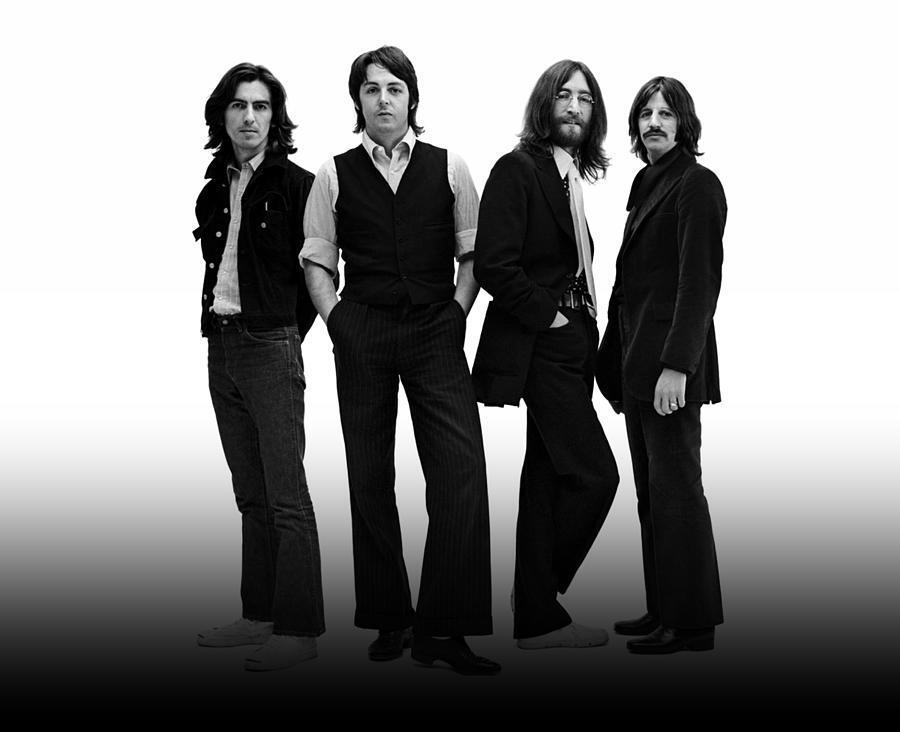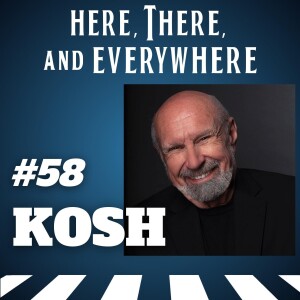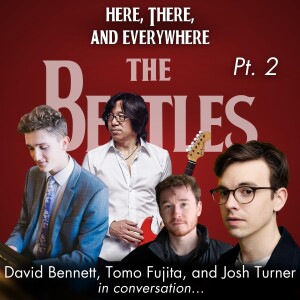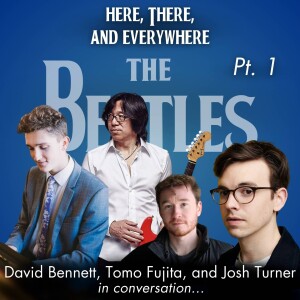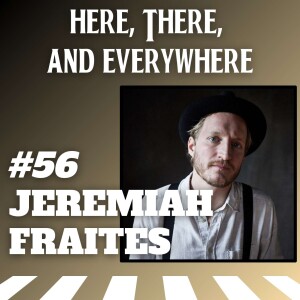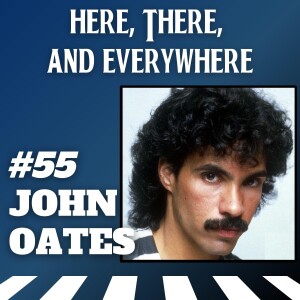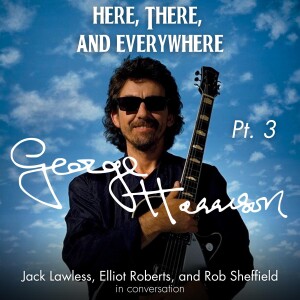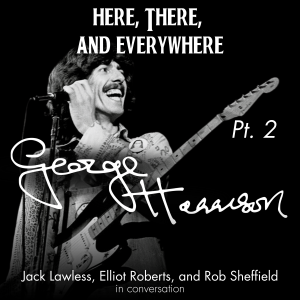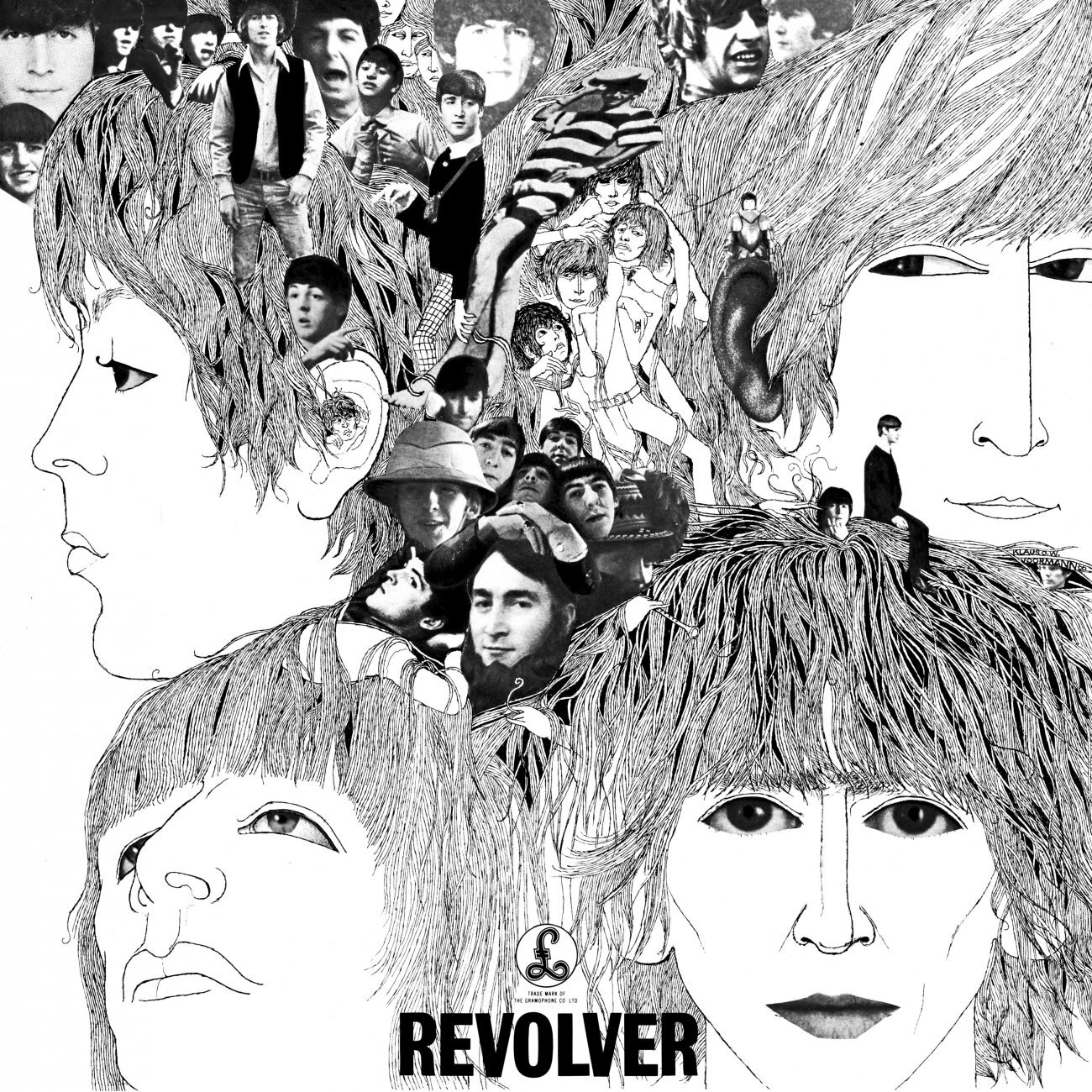You are tuning into the third and final part of the "Here, There, and Everywhere" round-table discussion about the life and music of George Harrison. In this part, Rob Sheffield, Elliot Roberts, and Jack Lawless talk about the 2011 "Living in the Material World" documentary about George's life, if we can collectively re-evaluate George's career as a musician in 2023, the difference the ability to stream music makes, and Elliot and Rob describe George Harrison in one word. Do we finally talk about "All Things Must Pass" in this episode? Only one way to find out!!
Rob Sheffield is a contributing editor at Rolling Stone and has been covering music, TV, and pop culture since 1997. He is the New York Times best-selling author of five books, including 'Love Is A Mix Tape,' 'Talking To Girls About Duran Duran,' 'Turn Around Bright Eyes,' 'On Bowie' and 'Dreaming The Beatles.'
Check out Rob Sheffield's book 'Dreaming The Beatles'
Follow Rob on Twitter: @robsheff
Elliot is a YouTuber who creates videos about The Beatles and their legacy. His YouTube videos have become quite popular, averaging close to a million views each, since his channel launched in late 2020. He's ranked every single Paul McCartney and John Lennon album - and has ranked every single Beatles biopic as well. His videos are some of the best Beatles content out there and are absolutely worth watching - you can subscribe to his channel, ElliotRobertsVideos.
Follow Elliot on Twitter: @ElliotRoberts5
If you like this episode, be sure to subscribe to this podcast! Follow us on Twitter and Instagram. Or click here for more information: Linktr.ee/BeatlesEarth
---
The Beatles were an English rock band, formed in Liverpool in 1960, that comprised John Lennon, Paul McCartney, George Harrison and Ringo Starr. They are regarded as the most influential band of all timeand were integral to the development of 1960s counterculture and popular music's recognition as an art form. Rooted in skiffle, beat and 1950s rock 'n' roll, their sound incorporated elements of classical music and traditional pop in innovative ways; the band later explored music styles ranging from ballads and Indian music to psychedelia and hard rock. As pioneers in recording, songwriting and artistic presentation, the Beatles revolutionised many aspects of the music industry and were often publicised as leaders of the era's youth and sociocultural movements.
Led by primary songwriters Lennon and McCartney, the Beatles evolved from Lennon's previous group, the Quarrymen, and built their reputation playing clubs in Liverpool and Hamburg over three years from 1960, initially with Stuart Sutcliffe playing bass. The core trio of Lennon, McCartney and Harrison, together since 1958, went through a succession of drummers, including Pete Best, before asking Starr to join them in 1962. Manager Brian Epstein moulded them into a professional act, and producer George Martin guided and developed their recordings, greatly expanding their domestic success after signing to EMI Records and achieving their first hit, "Love Me Do", in late 1962.
Lennon, McCartney, Harrison and Starr all released solo albums in 1970. Their solo records sometimes involved one or more of the others; Starr's Ringo (1973) was the only album to include compositions and performances by all four ex-Beatles, albeit on separate songs. With Starr's participation, Harrison staged the Concert for Bangladesh in New York City in August 1971. Other than an unreleased jam session in 1974, later bootlegged as A Toot and a Snore in '74, Lennon and McCartney never recorded together again.
Two double-LP sets of the Beatles' greatest hits, compiled by Klein, 1962–1966 and 1967–1970, were released in 1973, at first under the Apple Records imprint. Commonly known as the "Red Album" and "Blue Album", respectively, each has earned a Multi-Platinum certification in the US and a Platinum certification in the UK. Between 1976 and 1982, EMI/Capitol released a wave of compilation albums without input from the ex-Beatles, starting with the double-disc compilation Rock 'n' Roll Music. The only one to feature previously unreleased material was The Beatles at the Hollywood Bowl (1977); the first officially issued concert recordings by the group, it contained selections from two shows they played during their 1964 and 1965 US tours.
The music and enduring fame of the Beatles were commercially exploited in various other ways, again often outside their creative control. In April 1974, the musical John, Paul, George, Ringo ... and Bert, written by Willy Russell and featuring singer Barbara Dickson, opened in London. It included, with permission from Northern Songs, eleven Lennon-McCartney compositions and one by Harrison, "Here Comes the Sun". Displeased with the production's use of his song, Harrison withdrew his permission to use it.Later that year, the off-Broadway musical Sgt. Pepper's Lonely Hearts Club Band on the Road opened. All This and World War II (1976) was an unorthodox nonfiction film that combined newsreel footage with covers of Beatles songs by performers ranging from Elton John and Keith Moon to the London Symphony Orchestra. The Broadway musical Beatlemania, an unauthorised nostalgia revue, opened in early 1977 and proved popular, spinning off five separate touring productions. In 1979, the band sued the producers, settling for several million dollars in damages. Sgt. Pepper's Lonely Hearts Club Band (1978), a musical film starring the Bee Gees and Peter Frampton, was a commercial failure and an "artistic fiasco", according to Ingham.
Accompanying the wave of Beatles nostalgia and persistent reunion rumours in the US during the 1970s, several entrepreneurs made public offers to the Beatles for a reunion concert.Promoter Bill Sargent first offered the Beatles $10 million for a reunion concert in 1974. He raised his offer to $30 million in January 1976 and then to $50 million the following month. On 24 April 1976, during a broadcast of Saturday Night Live, producer Lorne Michaels jokingly offered the Beatles $3,000 to reunite on the show. Lennon and McCartney were watching the live broadcast at Lennon's apartment at the Dakota in New York, which was within driving distance of the NBC studio where the show was being broadcast. The former bandmates briefly entertained the idea of going to the studio and surprising Michaels by accepting his offer, but decided not to.









